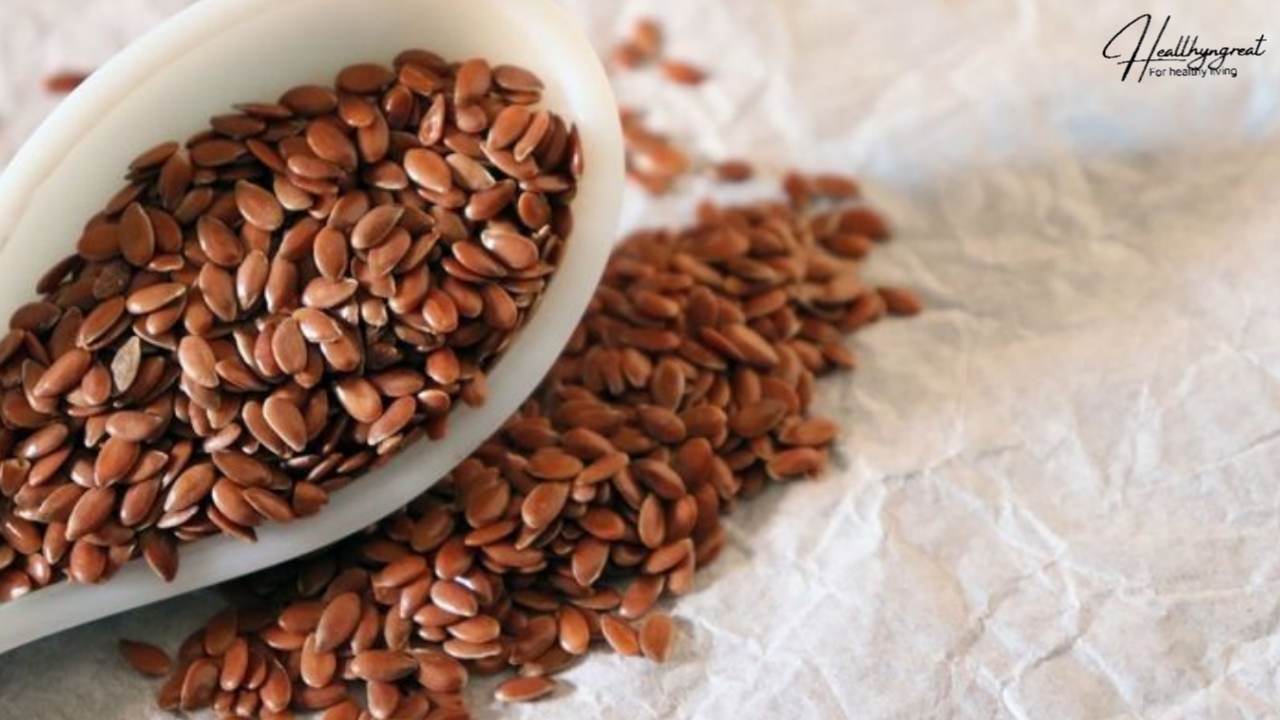Top 8 Health Benefits of Flax Seeds
Flaxseeds or alsi, have emerged as a super food due to its various health benefits. These little seeds are actually tiny wonders. Flax (Linum usitatissimum), a fiber crop, was first cultivated in Egypt. For centuries, it has played a key role in Ayurvedic medicine in Asia.
The healthy benefits from flaxseed consumption can be attributed to its high level of the essential fatty acid, omega 3 (linolenic acid ), fiber and lignans ( a certain type of plant chemical, that provide lots of antioxidant and fibre-related benefits. ).
Some of the health benefits of Flax Seeds include improving Cardiovascular Health,contain Anti-Inflammatory Properties, prevents the Risk of Cancer, improves Bone Health, improves Skin Health, and prevents the Risk of Anemia.
According to experts, even a tablespoon of flaxseeds is enough to meet your essential nutritional requirement.
Flax seeds are also rich sources of essential minerals such as magnesium and phosphorus, and it's available as tablets, powder, or oil, so there are plenty of ways to make sure you're getting to experience the health benefits of flaxseed.
Here are 8 health benefits of flax seeds that are backed by science.
Flaxseed Nutrition Facts
- Calories: 55
- 4.3 gram fat
- 3.1mg of sodium
- 3 gram of carbohydrates
- 2.8 gram of fiber
- 0.2 gram of sugar
- 1.9 gram of protein
1. Flax Seeds Are Loaded With Nutrients
Flax contains up to 800 times more lignans than other plant foods. Moreover lignans exhibit immunostimulatory anti-bacterial, anti-fungal and anti-viral effects.
2. Flax Seeds Are High in Omega-3 Fats
Flaxseeds are rich in omega-3 fatty acids, a polyunsaturated fatty acid that can help fight inflammation, lower total blood cholesterol including “bad” low-density lipoprotein cholesterol levels.
A Costa Rican study volunteered by 3,638 people found that participants who ate more ALA had a lower risk of heart attack than those who consumed less ALA . [3]
Further flax seeds are also beneficial for those suffering from hypertension, as they helps in regulating blood pressure.
3. Flax Seeds May Improve Cholesterol
Several studies have shown positive results in lowering cholesterol levels. Study conducted on postmenopausal women, consuming 30 grams of flax seeds daily lowered total cholesterol and LDL cholesterol by approximately 7% and 10%, respectively. [4]
Another study conducted people with high cholesterol, consuming 3 tablespoons (30 grams) of flaxseed powder daily for three months lowered total cholesterol by 17% and “bad” LDL cholesterol by almost 20%. [5]
If you a re worried about your cholesterol level flax seed might be a best option for you.
4. Flax Seeds May Reduce Cancer Risk
Several observational studies have shown that participants those who eat flax seeds have a lower risk of breast cancer, particularly postmenopausal women. [7]
5. Flax Seeds May Lower Blood Pressure
Flaxseed are great source of omega-3 fatty acid ALA and lignans both of which have shown to help lower blood pressure . [8]
According to a large review that looked at data from 11 studies, taking flax seeds daily for more than three months lowered blood pressure by 2 mmHg. [9]
6. Flax Seeds May Help Control Blood Sugar
According to Ala study, taking a tablespoon of ground flax seeds every day for a month lowers fasting blood sugars, triglycerides, cholesterol levels, as well as bringing a significant drop in A1C level. [10]
Flax seeds are a rich source of insoluble fiber, that is known to lower the effect of blood sugar level. Research has found that insoluble fiber slows down the release of sugar into the blood and reduces blood sugar. [11]
Also Read: Food to avoid when diabetes.
7. Flax Seeds May Help Reduce Weight
Flax seeds are packed with insoluble and soluble fiber along with healthy fat. Fiber played an important role in keeping you fuller for a longer period of time. In simple terms it suppress your sense of hunger and even helps to slow down your stomach in its process of emptying food.
Moreover flax seeds are also rich in omega-3. Various studies show that omega-3s may suppress appetite and improve satiety – and this may help in weight loss . [12]
Also Read: 6 Easy and delicious smoothies for weight loss.
8. Other Health Benefits Of Flax Seed
- May Enhance Digestive Health
- Flax Seeds Benefits For Hair Growth
- Keep Hormones Balanced
- May Fight Inflammation
- May Protect The Heart
- May Help Fight Acne
- Help Boost Immune System
- Maintains the Menstrual Cycle
- They Contain High-Quality Protein
- May Help Fight Depression
How To Add In Diet
Flax Seed Smoothie (Serving-1)
- ½ frozen banana, peeled and cut into chunks
- 1 cup frozen strawberries
- 2 tablespoons flax seed meal
- 1 cup low-fat vanilla soy milk
The Bottom Line
Beside being healthy, they are also a versatile food ingredient, flax seeds or flaxseed oil are easy to add to your diet. With so many benefits it's time for you to get a bag of flax seed from your local grocery store.
If you are new to our blog and prefer our statistics please subscribe us and follow us and you will be notified everytime when we post something new.











Post a Comment
0 Comments
If you have any doubt please let me know.